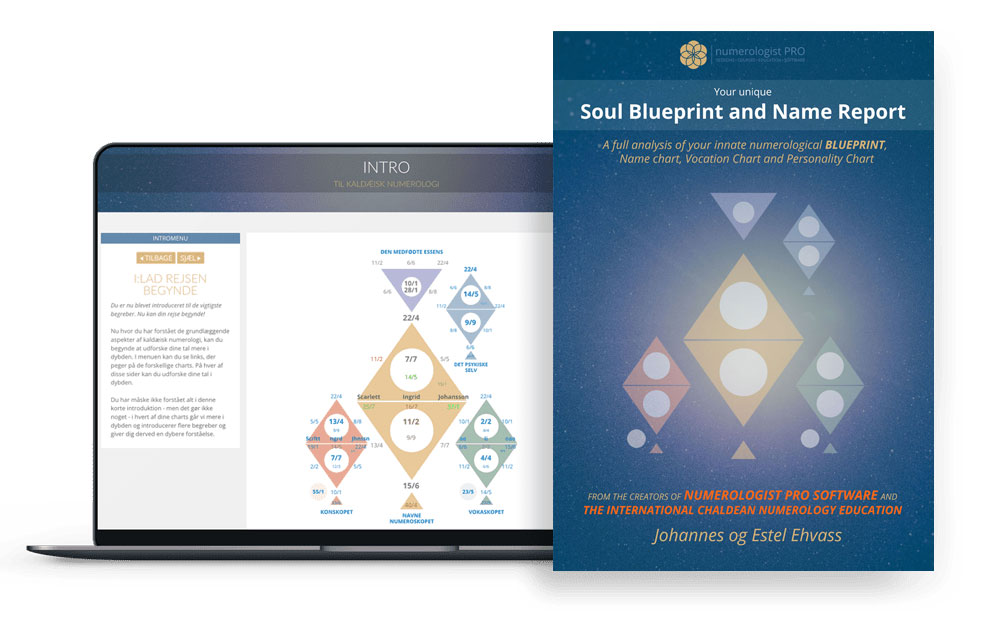Medieval Astrology

Johannes Ehvass
Welcome, dear reader! Together, we embark on a captivating journey into astrology, a timeless art and science that has accompanied humanity since its earliest days. Each astrological discovery not only mirrors the era and culture it emerged from but also feels like a celestial gift, as if the universe is directly speaking to us. Through these articles, I share with you the profound journey of how astrology has grown and evolved alongside us. Let's explore this cosmic connection that has, for millennia, enriched our understanding of ourselves and the universe around us.
Introduction: The Medieval Cosmos

The medieval period, stretching roughly from the 5th to the late 15th century, was a time of profound transformation in Europe. Often portrayed as an era of darkness and stagnation, this period was, in reality, an epoch of evolution, synthesis, and rebirth. As ancient empires crumbled, new kingdoms, ideologies, and cultures emerged. Central to this dynamic backdrop was the cosmos—a vast, intricate expanse that profoundly influenced medieval thought, culture, and daily life.
Setting the Medieval European Backdrop: From the Fall of Rome to the Dawn of the Renaissance
The fall of the Western Roman Empire in the late 5th century marked a significant turning point in European history. With Rome’s decline, the centralised structure that had dominated Europe for centuries fragmented into smaller, localized entities. Yet, amidst the upheavals, the seeds of medieval Europe’s rich tapestry of cultures, languages, and traditions took root.
During these early medieval centuries, Europe experienced invasions and migrations by various groups—the Vandals, Visigoths, Huns, and more. These movements reshaped political and cultural landscapes, leading to a complex interplay of traditions and identities.
As the early medieval dust settled, powerful kingdoms like the Carolingian Empire emerged, seeking to revive the grandeur of ancient Rome. By the 10th century, the papacy’s influence expanded, cementing the Roman Catholic Church as a dominant force in European life. The Crusades, pilgrimage, and monasticism became essential facets of medieval spirituality.
Yet, Europe’s heart wasn’t solely in the domain of power and faith. The medieval period bore witness to significant intellectual and artistic blossoming. Scholasticism in universities challenged minds, Gothic architecture reached for the heavens, and troubadours sang tales of chivalry and courtly love.
As the medieval period waned, a renewed interest in classical knowledge emerged, setting the stage for the Renaissance. Europe, by then, had undergone a metamorphosis, with the cosmos serving as both a guide and a muse.
The Influence of Prior Astrological Traditions on Medieval European Thought
One cannot delve into the medieval cosmos without acknowledging the profound astrological imprint on European thought. Astrology, the study of celestial bodies’ influences on earthly events, found fertile ground in medieval Europe, having evolved from a confluence of ancient traditions.
Greco-Roman Legacy: Astrology’s journey into medieval Europe began with the ancient Greco-Roman world. Hellenistic astrology, with luminaries like Claudius Ptolemy, laid the groundwork. Ptolemy’s Tetrabiblos, a seminal astrological text, integrated Babylonian astrological techniques with Greek cosmological theories. This synthesis offered a robust, systematic approach to understanding celestial influences. The Greco-Roman astrological concepts would later be absorbed, preserved, and transmitted by medieval scholars.
Persian and Islamic Contributions: As the Western Roman Empire declined, the torchbearers of classical knowledge shifted eastwards. The Sassanian Empire (Persia) became a crucible where Greek, Babylonian, and Indian astrological concepts merged. When the Islamic Caliphates later absorbed Sassanian territories, they inherited this rich astrological tapestry. Islamic scholars, in centers like Baghdad, translated, expanded, and refined these teachings. Their commentaries and works, translated into Latin, would profoundly influence medieval European astrologers.
Integration with Christianity: While astrology had pagan roots, it found a curious companion in Christianity. Initially met with skepticism, astrology began to intertwine with Christian thought by the High Middle Ages. Many medieval Christian scholars saw the heavens as a testament to God’s grand design. Figures like Albertus Magnus and Thomas Aquinas, while cautious, acknowledged astrology’s potential within a Christian framework. However, the Church’s stance on astrology was nuanced, oscillating between acceptance, ambivalence, and outright condemnation.
The Medieval Synthesis: By the 12th and 13th centuries, Europe experienced a “translation movement.” Works from Islamic scholars, infused with Hellenistic, Persian, and Indian knowledge, were translated into Latin. Centers like Toledo in Spain became hubs of intellectual exchange. Europe was reintroduced to Ptolemy, Aristotle, and other ancient luminaries, albeit with an Islamic scholarly imprint. This influx led to a unique medieval synthesis, where classical knowledge, Islamic insights, and Christian theology coalesced, with astrology playing a pivotal role.
Medieval astrology was no mere fatalistic pursuit. It was a complex, nuanced discipline that explored humanity’s relationship with the cosmos. Whether guiding physicians in medical treatments, aiding monarchs in decision-making, or prompting scholars to debate free will and determinism, astrology was woven into the medieval European psyche.
In conclusion, the medieval cosmos was an intricate dance of stars, planets, and earthly events—a reflection of a period that saw chaos, rebirth, and profound synthesis. Astrology, with its rich tapestry of influences, became a mirror to the medieval soul, searching for meaning amidst the vast, enigmatic expanse above.

Johannes & Estel: Renowned authorities in Numerology, Astrology, and the esoteric arts. As the founders of Scandinavia's premier Numerology school, we're delighted to share our insights through this curated series on astrology. Dive in and discover the stars.
The Worlds Most Advanced Numerology Report

Your birthdate reveals your unique life purpose, potentials, talents, weaknesses, and karma in this life.
Your names show what you attract into your life regarding your career, relationships, happiness, money, and success.
GET THE REPORT HERE
Introduction to Astrology
The history of Astrology
Moving beyond deterministic astrology
Foundation of Astrology: Planets, Signs and Houses
Astrology and the Holographic Universe
The Holographic Universe
The Human Psyche as a Mirror to The Solar System
The Human Body as a Mirror to The Star Signs
Astrology Background
Egyptian Astrology
Mayan Astrology
Chinese Astrology
Indian Astrology - Jyotish
Celtic Astrology
Tibetan Astrology
Mesopotamian Astrology
Early Mesopotamian Astrology: The Dawn of Celestial Divination
Enuma Anu Enlil: The Epicenter of Babylonian Celestial Omen Interpretation
Babylonian and Chaldean Astrology
Babylonian and Chaldean Astrology
Chaldean influence and evolution
Chaldean Wisdom: Safeguarding and Transmitting Astrological Knowledge
Hellenistic Astrology
Hellenistic Astrology background
Claudius Ptolemy and Tetrabiblos
Vettius Valens
Dorotheus of Sidon
Persian Astrology
Persian Astrology background
Sassanian Astrology
Late Antiquity and The Transition Period
Late Antiquity and The Transition Period
Hellenistic to Islamic Transition: The Torchbearers of Astrological Wisdom
Islamic Golden Age
Arabian Astrology Background
Arabian Astrology Contributions
Medieval Astrology
Introduction: The Medieval Cosmos
Monastic Preservers: Astrological Knowledge in the Dark Ages
Astrology in Medieval Medicine
Kings, Queens, and Constellations: Astrology in the Medieval Court
The Church and the Stars: A Contentious Relationship
Universities and Scholastic Pursuits: Academic Astrology
Astronomy & Astrology: Tools of the Trade
Medieval Astrological Houses and the Synthesis of Traditions
Transition to the Renaissance: Humanism and the Celestial Arts
Reflections: Medieval Astrology's Echoes in Modern Practice
Astrological Art of the Middle Ages
Famous Medieval Astrologers
Medieval Astrological Texts
Renaissance Astrology
Renaissance Humanism and Astrology
Scientific Advancements and Astrology
The Social Fabric: Astrology in Everyday Renaissance Life
Court Astrologers of the Renaissance
Controversies and Conflicts: Astrology Under Scrutiny
Renaissance Texts and Authors: Continuation of a Tradition
Astrology and Art: Celestial Imagery in the Renaissance
Renaissance Astrological Practices: Evolutions and Innovations
End of the Renaissance: The Gradual Decline of Astrological Influence
Renaissance Astrology's Echo in the Modern World
Enlightenment Astrology
Introduction: The Enlightenment and Astrology
Challenging the Stars: Astrology's Critics during the Enlightenment
Astrology and the New World
Astrology in the 19th Century
The Dawn of Psychological Astrology
Astrology in the 20th Century: A Modern Renaissance
Astrological Associations and Schools
Modern Controversies and Astrology
Astrology and Popular Culture
Astrology and Technology
Current Trends and Future Directions in Astrology
Conclusion: Reflecting on Astrology's Evolution
The Planet Significances
The Sun in Astrology
The Moon in Astrology
Mercury in Astrology
Venus in Astrology
Mars in Astrology
Jupiter in Astrology
Saturn in Astrology
Uranus in Astrology
Neptune in Astrology
Pluto in Astrology
Chiron in Astrology
Black Moon Lilith in Astrology
Pars Fortuna in Astrology
Ceres in Astrology
Houses in Astrology
Introduction to Astrological Houses
The Angular Houses
The Succedent Houses
The Cadent Houses
The 1st House
The 2nd House
The 3rd House
The 4th House
The 5th House
The 6th House
The 7th House
The 8th House
The 9th House
The 10th House
The 11th House
The 12th House
Interaction Between Houses
Derived Houses, House Rulers, and Interceptions
Conclusion: Synthesizing House Knowledge
All Materials © 2023 & 2024 Numerologist PRO
Terms of Service: Information provided by Numerologist PRO and/or from this web site is not intended as advice (medical, psychological, financial or other), nor is it intended to replace your work with a qualified professional (medical or otherwise). You should maintain your relationship with your providers and consider the services of this site as informational only. Any information, stories, examples, or testimonials presented on this website do not constitute a warranty, guarantee, or prediction regarding the outcome of an individual. This web site is a sharing of knowledge and information of numerology/energy work based on the experiences of Numerologist PRO. You are encouraged to make your own decisions based on your own research and inner guidance. By booking and receiving services, you agree to fully release and hold harmless Numerologist PRO and all it's affiliated numerologists from and against any liability or claim that may arise out of or in connection with their service(s).
Numerologist PRO © 2021

CONTACT
numerologist@numerologistpro.com
LIKE US, and get free numerology tools, info about your personal numbers, best business dates of the year - and more!
YOUR FREE NUMEROSCOPE CHART
Enter your name and email below and get access to our free online numerology chart tool.